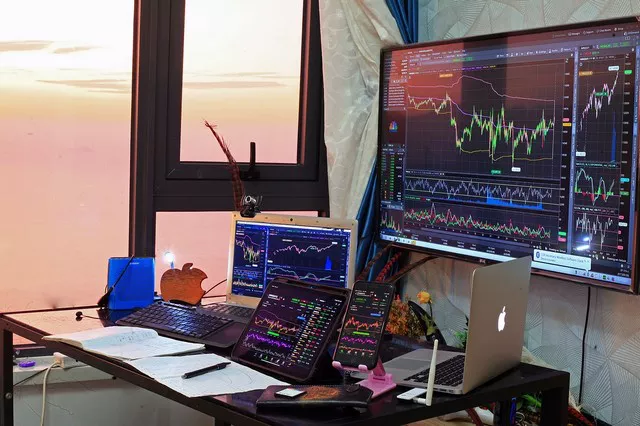Futures play a pivotal role in the financial markets, providing investors with a powerful tool for managing risk and speculating on price movements. To comprehend how futures and forwards are priced, it is essential to delve into the underlying mechanisms and factors that influence their valuation. In this article, we will explore the intricacies of futures pricing, highlighting key components and methodologies while drawing comparisons with forwards.
The Basics of Futures Pricing
At the core of futures pricing is the concept of market equilibrium. Futures contracts are standardized agreements to buy or sell an asset at a predetermined future date and price. The pricing of futures involves a delicate balance between the forces of supply and demand in the market. The prevailing market sentiment, influenced by various factors such as economic indicators, geopolitical events, and market speculation, contributes to the determination of the futures price.
Market Participants and Their Impact on Futures Pricing
Market participants, including hedgers, speculators, and arbitrageurs, significantly influence the pricing of futures contracts. Hedgers, seeking to mitigate the risk of adverse price movements, contribute to the stability of futures prices. Speculators, on the other hand, aim to profit from price fluctuations, introducing an element of volatility to the market. Arbitrageurs play a crucial role in ensuring that the futures price aligns with the spot price, taking advantage of any pricing discrepancies.
Interest Rates and Futures Pricing
Interest rates are a fundamental factor influencing the pricing of futures contracts. The cost of carrying an asset to the future delivery date, known as the cost of carry, is a critical component in futures pricing. The relationship between the spot price, the risk-free interest rate, and the time to maturity plays a pivotal role in determining the fair value of a futures contract. Understanding the interest rate environment is paramount for investors seeking to make informed decisions in the futures market.
See Also: Can I sell futures before expiry?
The Role of Spot Prices in Futures Valuation
Spot prices, representing the current market value of an asset, are instrumental in the pricing of futures contracts. The futures price tends to converge with the spot price as the delivery date approaches. This convergence is known as the basis, which reflects the difference between the futures and spot prices. Analyzing the basis provides valuable insights into market expectations and can aid traders in making informed decisions.
Costs Associated with Futures Trading
The pricing of futures contracts also takes into account various costs associated with trading, including transaction costs, margin requirements, and carrying costs. Transaction costs, incurred when entering or exiting a futures position, impact the overall profitability of a trade. Margin requirements act as a security deposit, ensuring that traders have sufficient funds to cover potential losses. Carrying costs, such as storage and insurance expenses, play a role in determining the overall cost of holding a futures position.
Comparing Futures and Forwards Pricing
While futures and forwards share similarities, such as their function as derivative contracts, there are key differences in their pricing mechanisms. Unlike forwards, which are traded over-the-counter (OTC) and have customizable terms, futures are standardized contracts traded on organized exchanges. This standardization simplifies the pricing process for futures, as the terms are predetermined, reducing negotiation and counterparty risk.
Market Liquidity and Futures Pricing
The liquidity of a futures contract is a crucial factor in its pricing. Highly liquid futures markets tend to have narrower bid-ask spreads, reducing trading costs for market participants. Liquidity is influenced by factors such as the number of participants, trading volumes, and the ease with which an asset can be bought or sold. Understanding the liquidity dynamics of a futures market is essential for investors seeking efficient price discovery and execution.
Volatility and Its Impact on Futures Prices
Volatility, representing the degree of price fluctuation in the market, has a profound impact on futures pricing. Higher volatility increases the perceived risk associated with a futures contract, leading to an adjustment in its price. Options pricing models, such as the Black-Scholes model, play a role in estimating future volatility and influencing the pricing of futures contracts with embedded options. Traders must consider volatility as a critical factor in assessing the potential profitability and risk of a futures position.
Regulatory Influences on Futures Pricing
Regulatory frameworks play a significant role in shaping the pricing of futures contracts. Regulatory bodies impose rules and standards to ensure fair and transparent trading practices. Margin requirements, position limits, and reporting obligations are among the regulatory measures that influence the behavior of market participants and, consequently, the pricing of futures contracts. Investors must stay informed about regulatory developments to navigate the futures market successfully.
Conclusion
In conclusion, understanding how futures are priced requires a comprehensive analysis of various factors, including market equilibrium, interest rates, spot prices, trading costs, and regulatory influences. The dynamic interplay of these elements contributes to the determination of a fair and transparent futures price. Investors and traders alike must navigate the complexities of futures pricing to make informed decisions and effectively manage risk in the ever-evolving financial markets. As we continue to explore the nuances of futures pricing, it becomes evident that a deep understanding of these factors is essential for success in the dynamic world of derivatives trading.


